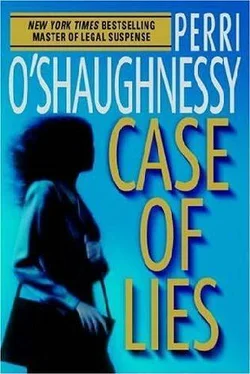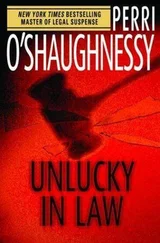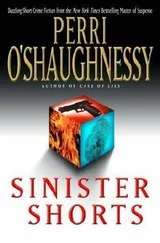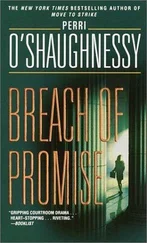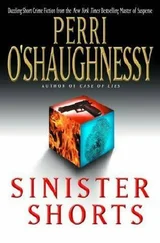Numbers: the integers, the irrationals, the transcendents, the imaginaries; numbers that presented mysteries brighter and more challenging than the mysteries of religion, because they could be solved with logic, someday, by someone.
He had first met the greatest mystery of all, the mystery of the prime numbers, when he was ten years old.
How these building blocks of all numbers are distributed along the great number line has never been understood. They seem to occur at random-2, 3, 5, 7, 11, 13, 17-and so on and on forever to those regions of monstrous limitlessness where Elliott’s little breeze blew. An integer was a prime number if you couldn’t divide it by any other integer except itself and one. But no formula could predict the sequence of primes. No formula could find the factors of large numbers, except by the crude method of searching one by one along the number line.
Yet all the great minds in mathematics over all the centuries agreed on one thing: The primes could not be random. If they were random, the ground of the universe was random, and this could not be, not with planets revolving around stars, not with the soaring bridges and skyscrapers people have built, not with the human eye, which seeks and finds harmony everywhere.
No, the primes could not be randomly distributed. One day as he furiously rowed across the flat water, Elliott made up his mind to devote his life to the primes. If he introduced a new devil into the world, if he found a truth that added to chaos instead of harmony, he would hold his answer close and decide then what to do with it.
He read everything he could about the attempts to find a formula to predict the primes. The geniuses of mathematics, the smartest people who ever lived, had tried to understand the primes, and been defeated. Some had lived long, quiet lives, but many who flirted with the primes had fallen while very young: Gauss, who left math forever in his twenties; Ramanujan, the vegetarian Brahmin who died at thirty-two; Gödel, who starved himself to death; Nash, teetering on the edge of the void most of his life; Grothendieck, still alive, cloistered in a hut in the Pyrenees, obsessed with the devil; Turing, who killed himself at forty-one by eating a cyanide-laced apple.
And the greatest of them all, in Elliott’s mind at least, Bernhard Riemann, who died in Italy at thirty-nine. Because of pleurisy, the books said, but Elliott figured he had died because the heat in him had died. Riemann had simply gone as far as he could. He had found a possible order in the primes and given the world a direction in the Riemann Hypothesis. It made sense to die then.
“The distribution of primes is linked to a mistake about what Zero and One actually are,” he told his parents at dinner one day. “Zero and One are the same point. They are definitely not numbers.”
“Prove it,” his father said.
“I will. I am going to be a mathematician.”
“Of course you are,” his father said. “But you have to study hard so you can go to a great university.”
Elliott scored a perfect 800 on his math SATs, but only 710 on the verbal side. The Massachusetts Institute of Technology offered him a scholarship anyway. He was eighteen when he got on the plane to Boston. His mother gave him two ham sandwiches so he wouldn’t have to eat airplane food. His father gave him a silver-chased mechanical pencil. He wrote down his solutions with that pencil forever after.
MIT appeared to bustle with student life, but in fact it was a lonely place where a lot of young people like himself, wearing specs, walked around in the same pair of jeans for days and ate alone in cheap eateries, punching calculators and hunching under the weight of their backpacks. Elliott wasn’t free to think anymore; he had to take classes in areas of knowledge that bored him, like English literature, and he spent a lot of time eating pizza and hiding out the first year. His dorm room, a high-rise on Memorial Drive, was always too hot from the central heating, and he shared the room with a social misfit from Minneapolis who talked even less than he did and dropped out during the second part of his sophomore year, leaving behind an empty bed and a starker silence.
Elliott tried out for crew, but confronted with the unfamiliar currents of the muddy Charles, he blew the tryouts. The broad shoulders he had developed rowing across the cove at home slumped and his neck was out most of the winter. He stayed through the winter break and caught a semipermanent cold from the foreign bugs of the East Coast. He missed his father and mother and wrote them endless E-mails.
His mother died suddenly. A heart attack. He spent the summer at home, trying to help his father cope.
It was so cold that second winter at MIT that Elliott almost gave up and went home. But then something happened that made weather and thoughts of home irrelevant.
At the Science Library one freezing January day, Elliott was working through some functions when Silke Kilmer, the most beautiful woman in his physics class, came up behind him and placed her divine soft cheek next to his. Startled, he gave her a push that almost knocked her over and jumped out of his chair.
“Sorry,” she said, smiling. She had recovered like a cat, her hand barely touching the table to stabilize her.
“No. My fault. I’m sorry.”
“Can I talk to you for a minute? I know you’re working, but-just for a minute?”
“By all means,” Elliott said, kicking himself mentally for sounding so pompous.
They sat down again, alone in the group of cubicles on the third floor where Elliott spent a lot of his evenings. Silke set down her heavy backpack and took off her navy pea coat, revealing a fuzzy white sweater with a turtleneck that gave her an exaggerated silhouette, the angles between her chest and ribs and stomach fascinatingly concave and convex.
Elliott tried not to stare at her. She had dark hair and red full lips, and olive skin as though she were Mediterranean, not from some little town in Germany whose name Elliott couldn’t remember.
He knew that she was on scholarship, too, and that she sometimes answered questions in class he couldn’t. She wanted to be a quantum physicist, they all did, all except Elliott, who wanted to be a mathematician. Of the three girls in the class, she was the one who came in late, who smiled, who would talk to any of them. The bet was that she would not return to Germany, that a big American university like Princeton would grab her. She had the smarts, but she was also gracious and sociable, which was not something you came across every day at MIT.
That she had sought him out brought a flush to his cheeks. That her young and beautiful body exuded heat and perfume right next to his made him take a wadded-up handkerchief out of his shirt pocket and take off his glasses and wipe them thoroughly.
“What are you working on?” she asked. “I don’t recognize your symbols, Wakefield.” A pink nail, comma-shaped, perfect as a seashell, tapped his paper.
“My paper for number-theory class. On the Riemann Hypothesis. The zeta function.”
“Of course.” She smiled, and he understood what she meant: that it was just like him to choose the most difficult, abstruse subject possible.
She said, “My paper is also on the primes.”
“You’re kidding!”
“But I’m following a line based on the work of Michael Berry. I’m interested in the idea that the energy levels in heavy nuclei seem to be related to Hermitian matrices in the same way the primes are. I’m a double major in physics, did you know that?”
“I didn’t know you had this interest,” Elliott said. “But the Hermitian matrices correlations-they are just interesting correlations, until someone can explain the actual relationship, if there is one. Personally, I don’t believe there’s any connection between the primes and the real world, even the subatomic world. I used to think that, though. When I was a kid.”
Читать дальше
